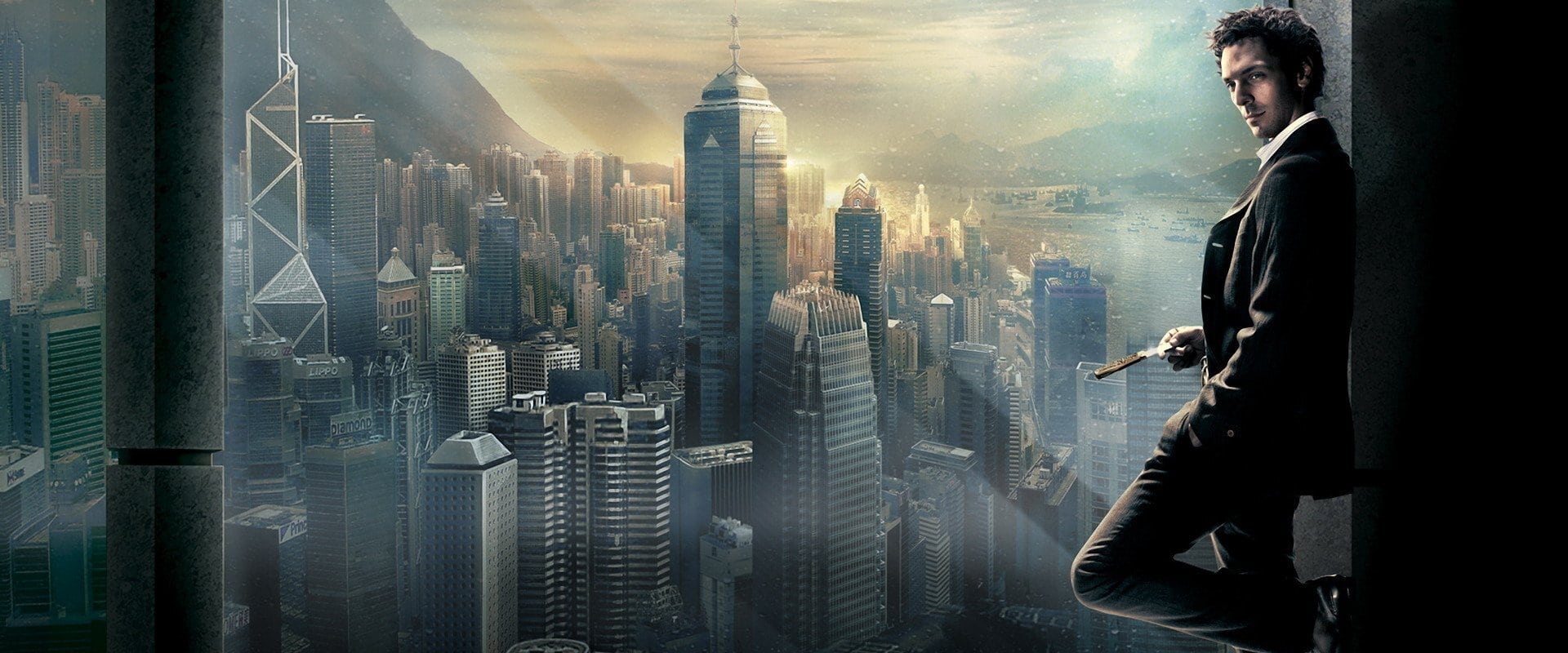Is it possible for a corporate thriller to wear its adrenaline on its sleeve and still sneak in—amid the boardroom jousting—moments of sly vulnerability? Sitting down to The Heir Apparent: Largo Winch, I was bracing myself for the usual tidied-up action pulp, clipped of imagination, and dully reverent to its source material (the Belgian comic series, in this case). Instead, the film lured me in with its mixture of shameless melodrama and genuinely clever backroom shenanigans. Director Jérôme Salle concocts a movie that is a brisk, terrifically twisted chess match masquerading as a summer blockbuster—an entertainment with both gloss and glimmer, if not quite bite.
Is it possible for a corporate thriller to wear its adrenaline on its sleeve and still sneak in—amid the boardroom jousting—moments of sly vulnerability? Sitting down to The Heir Apparent: Largo Winch, I was bracing myself for the usual tidied-up action pulp, clipped of imagination, and dully reverent to its source material (the Belgian comic series, in this case). Instead, the film lured me in with its mixture of shameless melodrama and genuinely clever backroom shenanigans. Director Jérôme Salle concocts a movie that is a brisk, terrifically twisted chess match masquerading as a summer blockbuster—an entertainment with both gloss and glimmer, if not quite bite.
The premise is as satisfyingly ludicrous as anything from the Fleming knock-off files: billionaire Nerio Winch is murdered under mysterious circumstances, leaving the vast W-Group teetering on the brink, and from the rain-slicked, ruinous beauty of Brazil emerges Largo—the secret son, the would-be savior, the man who must prove his worth in a world so slick with betrayal you practically need traction shoes. Salle plays it with a straight face, but never lets the movie become mechanical. Each twist arrives with the snap of a blackjack, and even the executive double-crosses are sauced with pulp exuberance.
But the center of the film, the engine by which all this convoluted business becomes bearable—hell, even a little exhilarating—is Tomer Sisley’s Largo. Sisley is the kind of actor who works on you by stealth; he’s wiry, whip-smart, and exudes scrappy charisma, but he’s never just a puppet for plot. There’s a lovely, half-wounded quality in his performance—as if the gloss of inherited wealth can barely cover up the fact that he’s still, in spirit, that bruised boy on the street. It makes the climactic grapple for identity (and fortune) mean something: you root for him, not just because the movie tells you to, but because his restlessness and doubt have the tang of authenticity.
And yet, around him, the supporting cast—on paper, as gold-plated as a Swiss watch—mostly drift in and out like beautiful extras at a gallery opening. Mélanie Thierry, perfect of cheekbone and gaze, has all the right intrigue but none of the soul. Kristin Scott Thomas glides through as Ann Ferguson, arch and ambiguous, but can’t overcome the script’s reluctance to let anyone but Largo have an inner life. Their machinations are fun to watch, certainly—they’re the gears keeping the plot spinning—but you feel, ruefully, how much more delightful this film could have been if these women had some real dramatic meat to gnaw.
This is not to say Salle’s direction is all surface. On the contrary: he gifts the film with a cosmopolitan shimmer. His camera lingers over the kind of Bond–ian locations that make you wish you’d bothered to renew your passport—sun-soaked harbors, steel-and-glass boardrooms, jungles in moody half-light. His action sequences pop like the cork on a cheap bottle of Veuve, but he’s canny enough to let moments of quiet calculation slip in between the detonations. The narrative rhythm is assured, and Salle never treats the emotional subtext as something frivolous or extraneous; the film’s corporate coup is less about raw greed than about the inheritance of loneliness, and the trickiness of trusting anyone when everyone has a knife tucked behind the lapel.
Here’s where the script, surprisingly, comes alive: the best scenes are not those with fists flying, but the ones in which dialogue ricochets with wit and chilly laughter. If you have even a passing fondness for the phrase “leveraged buyout,” this film will give you a ticklish sort of pleasure. The writing is clever, self-aware, and even a little romantic about the arcana of business—a playfulness that refuses to take itself too seriously, and wisely so.
What lingers, after the credits, isn’t the body count (adequate, for those who are counting), or even the final twist (which dutifully satisfies). It’s the sense that beneath all the jet-set conspiracy, there’s a sneaky earnestness about what it means to inherit not only empire but family failings—and to find your own self in the process. Largo’s odyssey is less about grabbing the keys to the kingdom and more about examining the smudges on the inheritance, the ways that legacy is both curse and possibility.
The Heir Apparent isn’t what the studio PR machine will try to sell you as “edge-of-your-seat” action. It’s not that kind of movie, and it doesn’t need to be. If you pay attention, you’ll find it’s a decent entertainment: stylish, thoughtful, sometimes gleefully silly, and never outright cynical. Sure, some viewers will stumble on the corporate convolutions—what movie in this genre doesn’t risk that?—but for those of us who find joy in a plot that bounces between the boardroom and the back alley, there’s real pleasure here.
You want a pithy bottom line, the kind they’d print on a movie poster? Largo Winch: The Heir Apparent is what happens when you put a little soul in your stock options—and let the hero punch above his weight, both physically and emotionally. For an evening’s escapism with substance, this is a ride worth taking.


